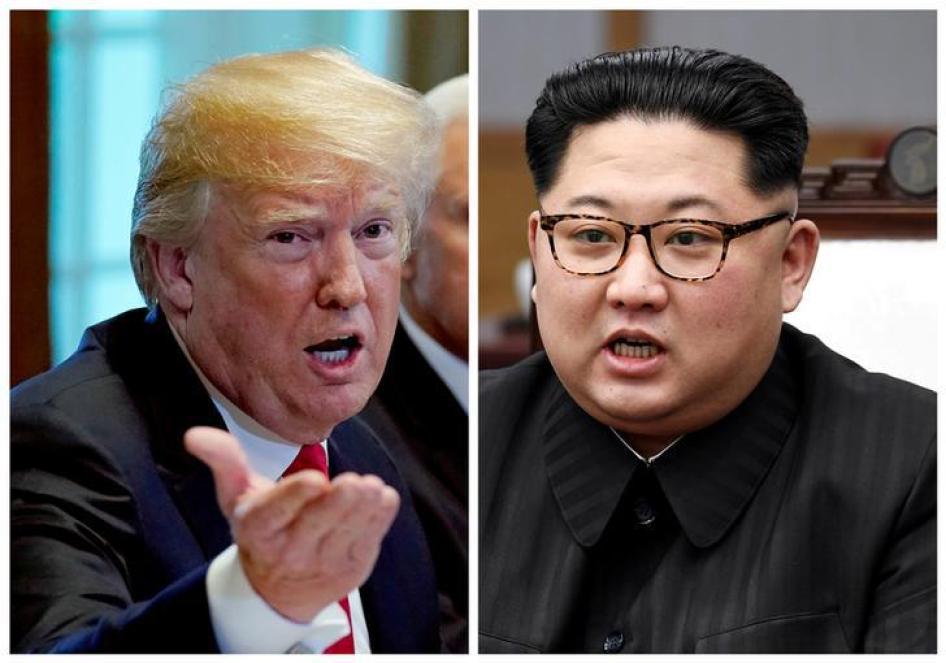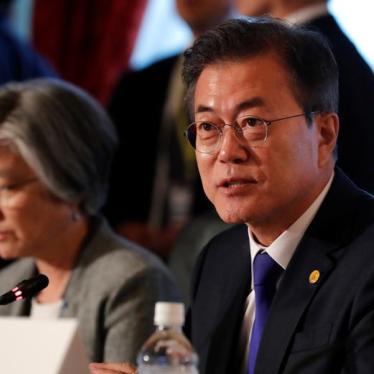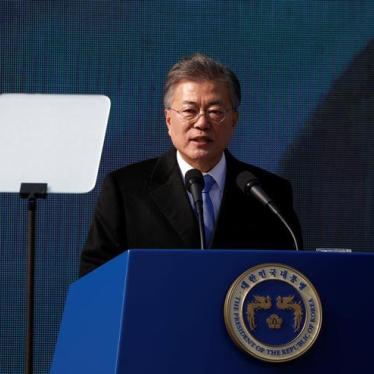(New York) – United Nations and bilateral sanctions against North Korea for grave human rights violations should continue until the government makes substantial progress addressing abuses, Human Rights Watch said today. A new Q&A answers questions about the sanctions regime and outlines the importance of human rights to negotiations that are primarily focused on nuclear proliferation issues.
A possible summit between US President Donald Trump and North Korea’s leader Kim Jong Un has increased attention on the sanctions regime in place against North Korea. Current sanctions address both North Korea’s missile and nuclear weapons proliferation activities and its horrific human rights record. The Q&A examines how the sanctions work, why they were imposed, and how they might be relaxed, lifted, or intensified in the future.
“In a country that is often described as the most repressive in the world, human rights should be a central feature of all discussions and negotiations,” said Brad Adams, Asia director. “Whatever the outcome of nuclear talks, human rights-related sanctions should remain in effect until North Korea changes the way it treats its people.”









